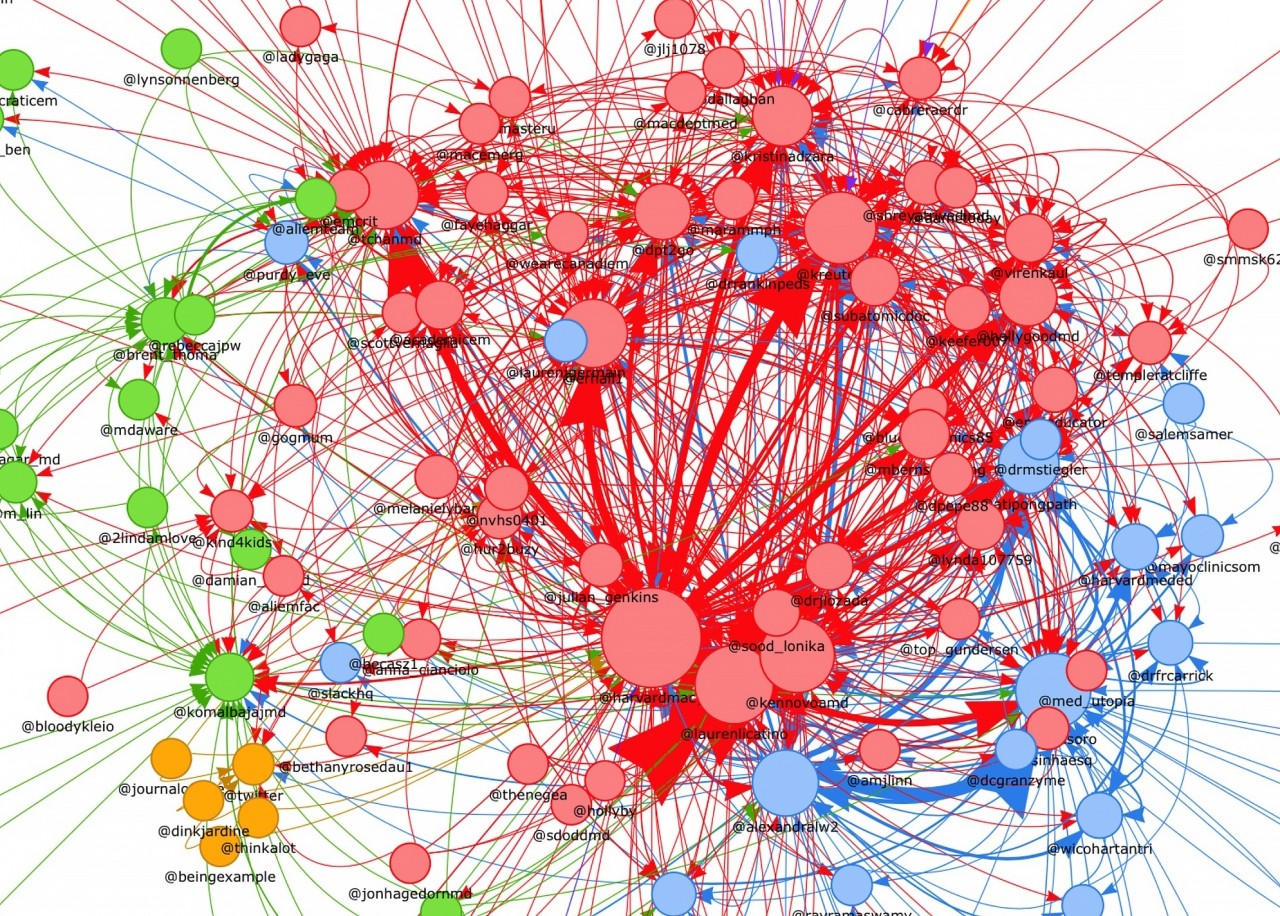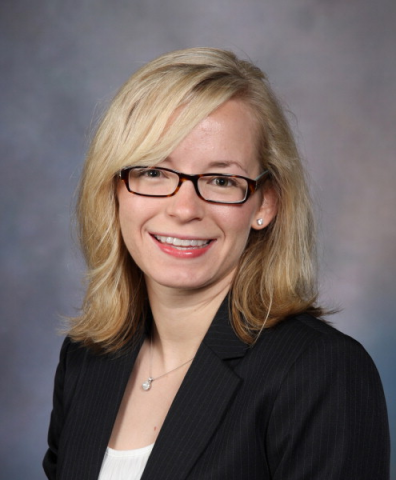Guest Moderator Dr Lauren Licatino reflects on last month’s #HMIchat about what value Social Media can bring to Medical and Health Profession Education. The chat was rich, with lots of discussions and a large amount of both scientific and practical tips emerged.
Listen to the reflection with the HMIchat team and read Lauren’s thoughts below:
As I sat in my cozy office in the basement of an historic building in Rochester, MN and began to reflect on the most recent #HMIChat, I was struck by the fact that through social media I had been able to interact with a truly global #MedEd community. The discussion was enriched by educators from multiple countries and cultures and each contributor brought something new to the conversation. I think this is exactly what we are looking for when we ask the question, “what value can social media bring to medical and health profession education?” Though I’m in the early stages of my #meded journey, I still marvel at how far I’ve come in such a short period of time by learning from the views of others on various social media platforms.
So, what were the key themes and messages that emerged during the chat? While the list is long due to rich conversation, here are some of the highlights.
- Social media has changed the learning landscape by removing hierarchies as well the boundaries traditionally imposed by location and time
- Social media has improved access to information and reduced barriers to publication
- We must remain ever diligent in evaluating and curating the quality of digital resources
- Social media can provide an excellent opportunity for professional development and networking
- Feedback between learners and educators can occur real time and the roles have become more flexible
- Social media may be used to integrate educational theories into teaching practice, such as spaced repetition
- Though education with #SoMe may reduce cost, considerable time may be required to develop and curate materials
- We should consider design thinking when integrating social media into an educational experience.
- A wealth of potential uses of social media in education include (but are certainly not limited to):
One topic that elicited a great deal of discussion was a challenge that I am experiencing in my own #meded practice. A number of chat participants are struggling to determine the best methods of encouraging engagement in the use of social media in medical education. Many educators remain fearful, resistant, or disinterested, despite significant opportunities. Learners may prefer to keep their social media accounts personal and not engage on a professional level, even if quality content is available and networking opportunities abound. Digital literacy may also prove a barrier on both sides of the learning experience. Finally, some medical specialties have in large part shied away from entering the social media realm. While many suggestions were offered including modeling behavior and discussing real benefits, the struggle remains.
I would challenge all of you who have taken time to engage in the twitter #HMIChat, podcast, or this blog to continue to develop and share innovative methods of using social media to educate and engage learners as well as faculty. Through this amazing and enriching global community, we have an opportunity to change the face of medical education in a digital age.
Finally, one of the strengths of this chat was the vast contribution of resources from participants, particularly Teresa Chan. Thank you to all who provided articles for the community! The following references were mentioned during the chat. Enjoy these articles and please continue to post articles on twitter and the blog post by commenting below!
Articles:
Chan TM, Thoma B, Lin M. Creating, Curating, and Sharing Online Faculty Development Resources: The Medical Education in Cases Series Experience. Academic Medicine. 90(6):785–789, JUN 2015. https://www.ncbi.nlm.nih.gov/pubmed/25785678.
Kind T, Patel PD, Lie D, Chretien KC. Twelve tips for using social media as a medical educator. Med Teach. 2014 Apr;36(4):284-90. https://www.ncbi.nlm.nih.gov/pubmed/24261897.
Sidalak D, Purdy E, Luckett-Gatopoulos S, Murray H, Thoma B, Chan TM. Coached Peer Review: Developing the Next Generation of Authors. Acad Med. 2017 Feb;92(2):201-204. https://www.ncbi.nlm.nih.gov/pubmed/27191842.
Chan TM, Thoma B, Radecki R, Topf J, Woo HH, Kao LS, Cochran A, Hiremath S, Lin M. Ten steps for setting up an online journal club. J Contin Educ Health Prof. 2015 Spring;35(2):148-54. https://www.ncbi.nlm.nih.gov/pubmed/24261897.
Melvin L, Chan TM. Using Twitter in Clinical Education and Practice. J Grad Med Educ. 2014 Sep; 6(3): 581–582. https://www.ncbi.nlm.nih.gov/pmc/articles/PMC4535229/
Gottlieb M, Chan TM, Sherbino J, Yarris L. Embracing Technology to Increase Efficiency and Maximize Efforts. AEM Education and Training. 2017 July; 1(3): 185-190. http://onlinelibrary.wiley.com/doi/10.1002/aet2.10029/abstract
Chan T, Trueger NS, Roland D, Thoma B. Evidence-based medicine in the era of social media: Scholarly engagement through participation and online interaction. CJEM. 2017 Jan 12:1-6. https://www.ncbi.nlm.nih.gov/pubmed/28077195.
About the author:
Lauren Licatino, MD, is a Senior Associate Consultant at Mayo Clinic, an Instructor of Anesthesiology for the Mayo Clinic College of Medicine and Science, and Associate Program Director for the Mayo Clinic Anesthesiology Residency (MN). Lauren is a Harvard Macy Institute Health Care Education 2.0 scholar and was awarded this year an Education Science Career Development Award at Mayo Clinic. Lauren’s interests include in #SoMe, curriculum, simulation, and assessment.
#hmichat
#hmichat has not set their biography yet


